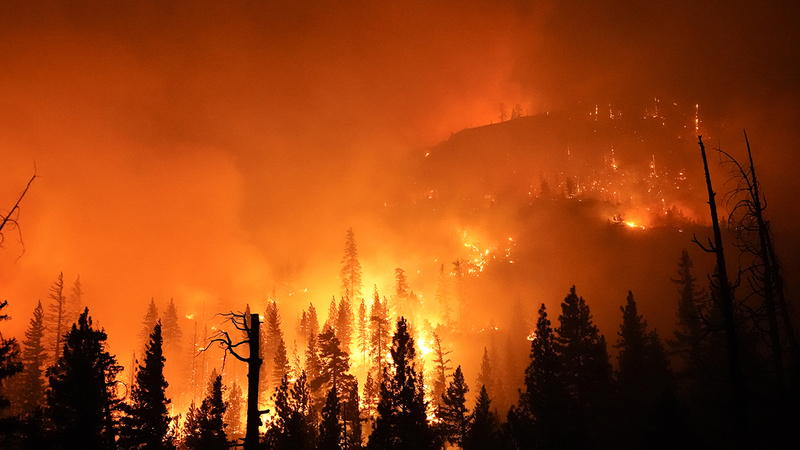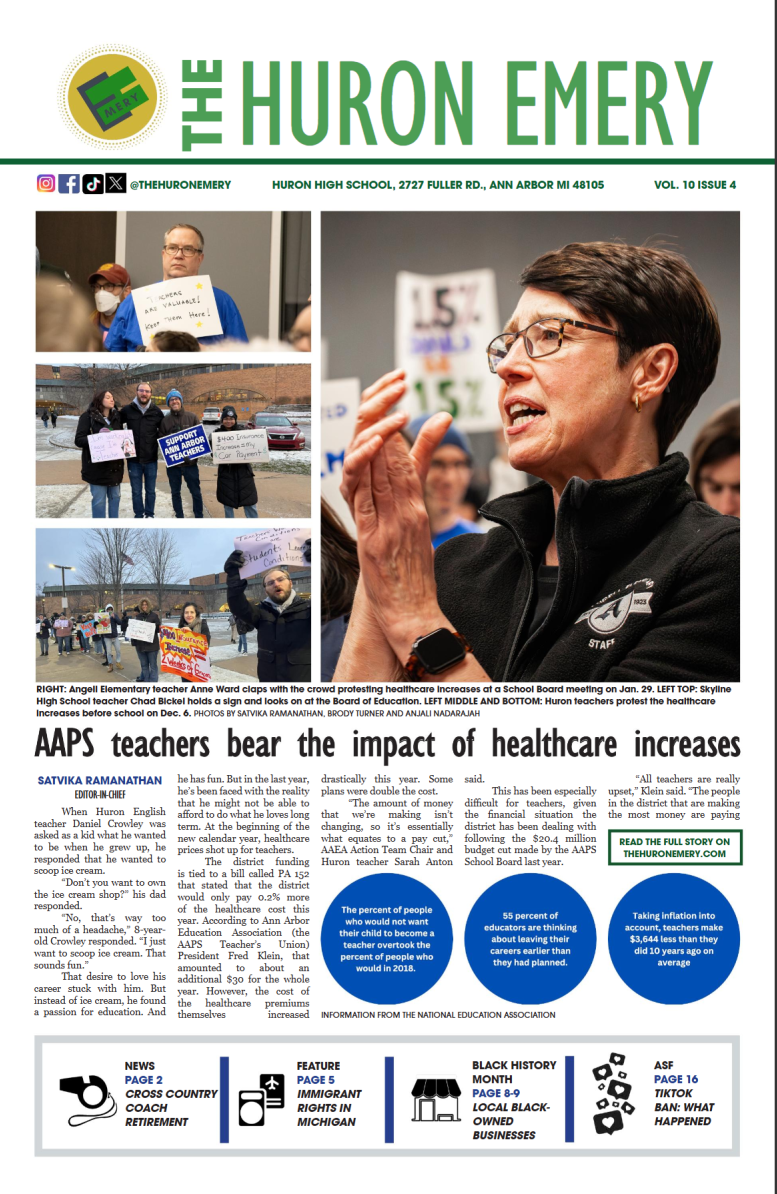Climate Change is on Our Doorstep—We Must Face it Now
The Creek Fire burns in the Sierra National Forest, Sunday, Sept. 6, 2020, near Big Creek, Calif. (AP Photo/Marcio Jose Sanchez)
November 10, 2020
By now, I’m sure you’ve seen the pictures. Just a few weeks ago, whether it be Portland or San Francisco, western US cities have been turning into landscapes reminiscent of post-apocalyptic worlds only seen in movies or video games. At the opposite side of the country, hurricanes are battering the coast with increased intensity and frequency, cutting power to thousands, while slowly racking up a considerable death toll. Not to mention, we are in the middle of the largest pandemic of the century.
Since the dawn of human evolution, fear has stemmed from a lack of control. Natural disasters like floods, hurricanes and wildfires have always been the cause of unease, often spawning myths and legends of angry gods or spirits to explain the unexplainable. So why now have people seem to come to terms with such terrible events, especially as people continue to suffer from their effects?
The human race has always forged forward to improve life quality and conquer fear through technology or culture. Now, we can have air conditioning in Arizona and make islands appear from the sea. However, in the grand scheme of things, our achievements have been limited. Though we now are more understanding of the causes of these phenomena, we can do little to stop them. When Mother Nature comes brings out real natural disasters: tsunamis, hurricanes, tornados, just to name a few, humans are almost still just as vulnerable as they were thousands of years ago.
Fortunately, there are still some things we can do. There is one thread of change that is accelerating all these phenomena: global warming. The impact of humans on the increasing temperature of the planet is irrefutable, and has already been linked to wildfires, hurricanes and epidemics. As the waters near the equator (which generate hurricanes) get warmer, hotter fuel kickstarts future natural disasters. Increasing movements of humans and animals from these already horrific disasters contribute to an increasing onslaught of new epidemics. Temperatures rise, and already dry forests become breeding grounds for dry tinder, which only need one unlucky lighting strike or careless cigarette to turn an ember into an inferno. Furthermore, the fires release all the carbon sequestered in the forest, turning huge carbon sinks into soot, accelerating the greenhouse effect.
The data only reinforces this point. Already, since 1900, the sea level has already risen 7-8 inches, due to melting sea ice. By 2050, 300 million people are expected to be displaced by rising waters. Models have predicted a doubling in category 4-5 hurricanes, which have the capacity to cause billions of dollars in damage. The occurrence of large wildfires (over 1,000 acres) has doubled in the past 50 years. Experts, including Dr. Fauci, warn of a “pandemic era,” where new diseases threaten to become the new norm.
Climate change clearly cannot be ignored. The UN has already stated that if no fundamental changes are made to the current level of carbon emissions, by 2030, the damage to the environment will be irreversible. The scientific consensus is this: the later we act, the harder is it to stop the runaway train—and the train is already halfway out the station.
Every generation had their struggles. Before us, was the Cold War and WW2. For us, this struggle is climate change. This may be the biggest challenge to ever face humans since we became the dominant species on the planet.
We must attack this human crisis from all angles, from our daily lives to the highest pillars of society. This means changing your own lifestyle, including simple tips such as wearing a sweater instead of turning on the heat, but also lobbying lawmakers to change the way large corporations like Exxon Mobil, who actually release the same amount of CO2 as roughly 15 millions households.
We don’t have time to hope for a miracle, and keep kicking the can down the road. We are already on the cusp of disaster—it’s time to act.











